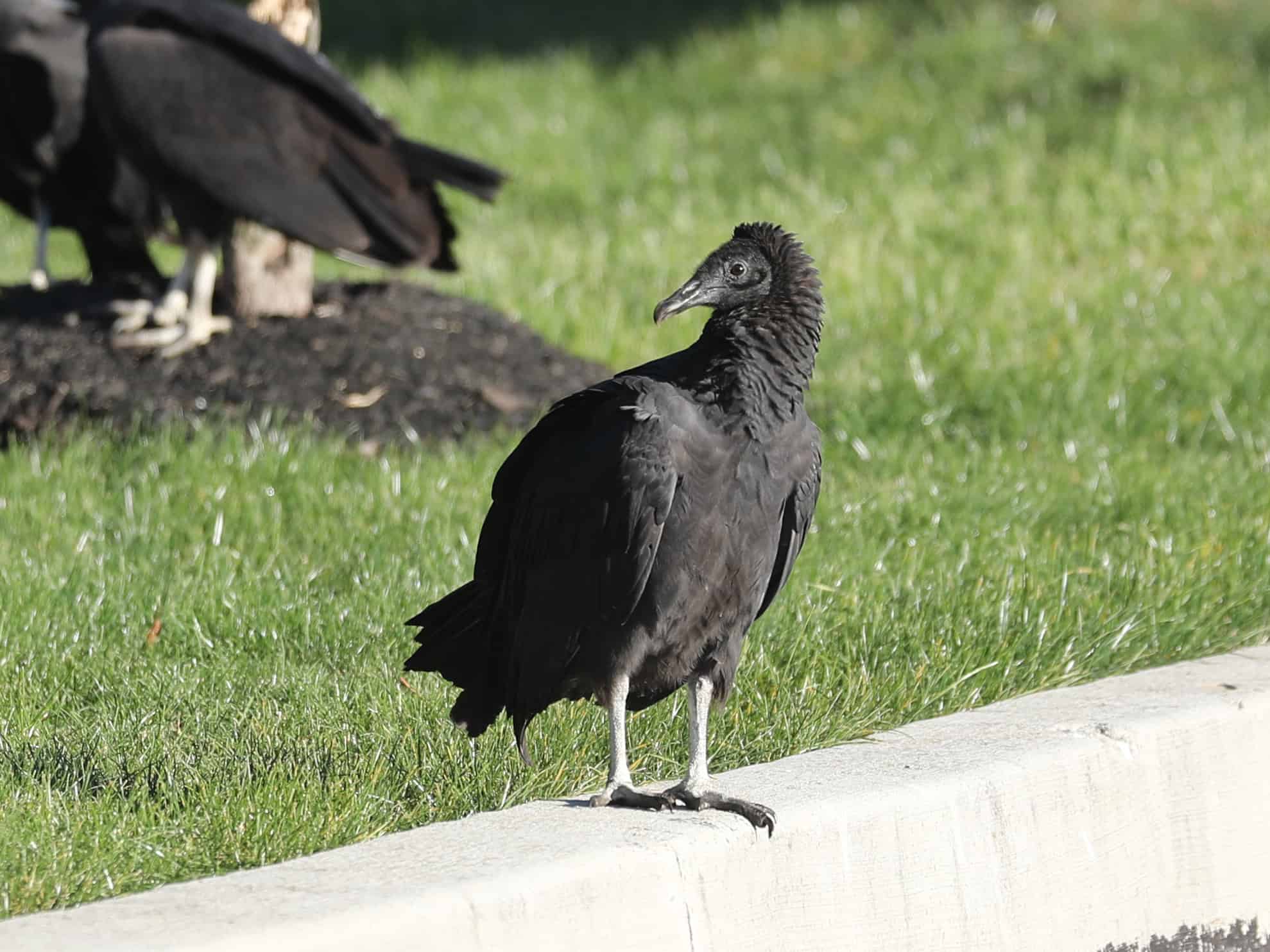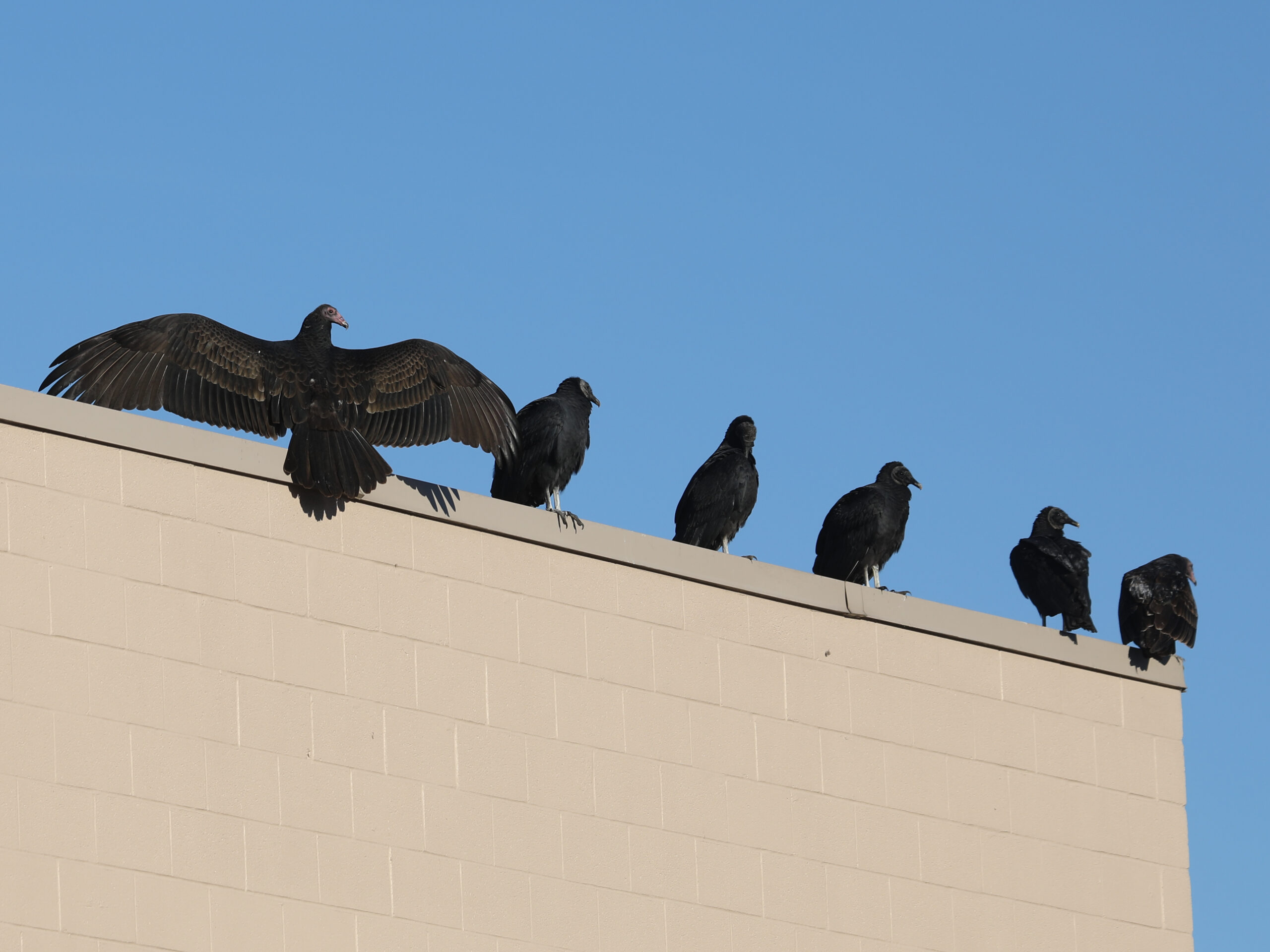Nature’s Clean-up Crew: Vultures
A flock of vultures was perched behind the Mechanicsburg store when I got to work earlier this week. Most were Black Vultures, but a few Turkey Vultures were also present. You’ve probably heard that a flock of crows is often called a murder of crows. A flock of vultures has three traditional names, depending on what they’re doing. These vultures, sitting together in a group, are a committee of vultures. If they were flying together, they’d be a kettle of vultures. My favorite is the term for vultures gathered around a dead animal – a wake of vultures.
Turkey Vultures and Black Vultures are the only two species of vultures found in Pennsylvania. Unlike most birds, Turkey Vultures have a great sense of smell, which they use to locate dead animals to eat. Black Vultures lack that strong sense of smell, relying on their sharp vision. In addition to looking for dead animals, Black Vultures keep a close eye on Turkey Vultures. If they see that a Turkey Vulure found a carcass, they quickly fly there themselves to try to steal part of the meal.
Black Vultures are very social. Breeding pairs stay together year-round, and often for life. Adult vultures continue to feed their young for eight months after the eggs hatch, much longer than most other species of birds. They join up at communal roosts at night, perching with many other vultures, many of which are close relatives. One important benefit of the communal roost is that vultures that didn’t find food can follow those that did on the following day.
Nature’s Clean-up Crew: Vultures
A flock of vultures was perched behind the Mechanicsburg store when I got to work earlier this week. Most were Black Vultures, but a few Turkey Vultures were also present. You’ve probably heard that a flock of crows is often called a murder of crows. A flock of vultures has three traditional names, depending on what they’re doing. These vultures, sitting together in a group, are a committee of vultures. If they were flying together, they’d be a kettle of vultures. My favorite is the term for vultures gathered around a dead animal – a wake of vultures.
Turkey Vultures and Black Vultures are the only two species of vultures found in Pennsylvania. Unlike most birds, Turkey Vultures have a great sense of smell, which they use to locate dead animals to eat. Black Vultures lack that strong sense of smell, relying on their sharp vision. In addition to looking for dead animals, Black Vultures keep a close eye on Turkey Vultures. If they see that a Turkey Vulure found a carcass, they quickly fly there themselves to try to steal part of the meal.
Black Vultures are very social. Breeding pairs stay together year-round, and often for life. Adult vultures continue to feed their young for eight months after the eggs hatch, much longer than most other species of birds. They join up at communal roosts at night, perching with many other vultures, many of which are close relatives. One important benefit of the communal roost is that vultures that didn’t find food can follow those that did on the following day.
About The Author
Dan Hinnebusch is the Ornithologist for Wild Birds Unlimited. Click to learn more.





